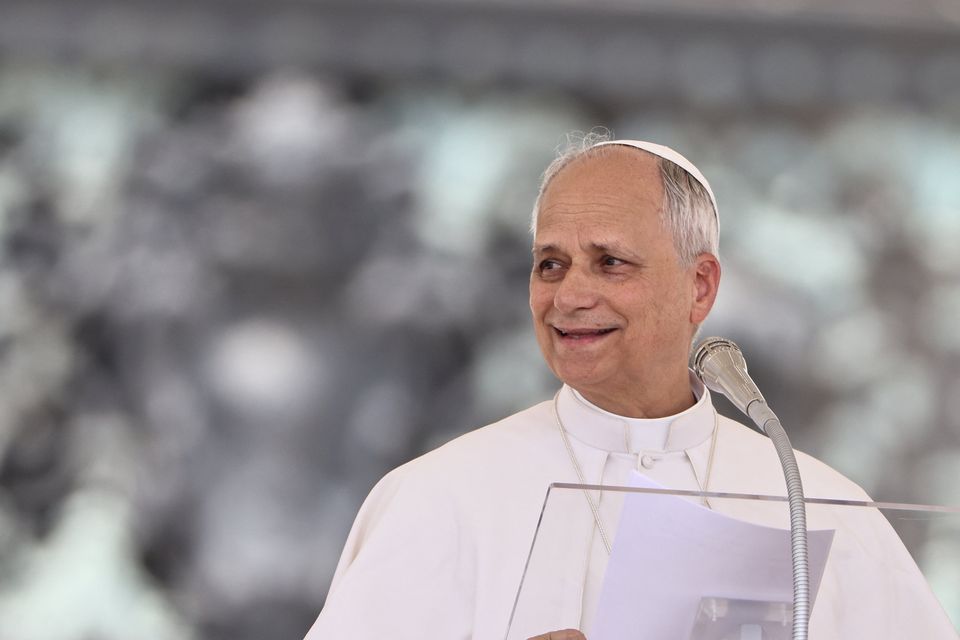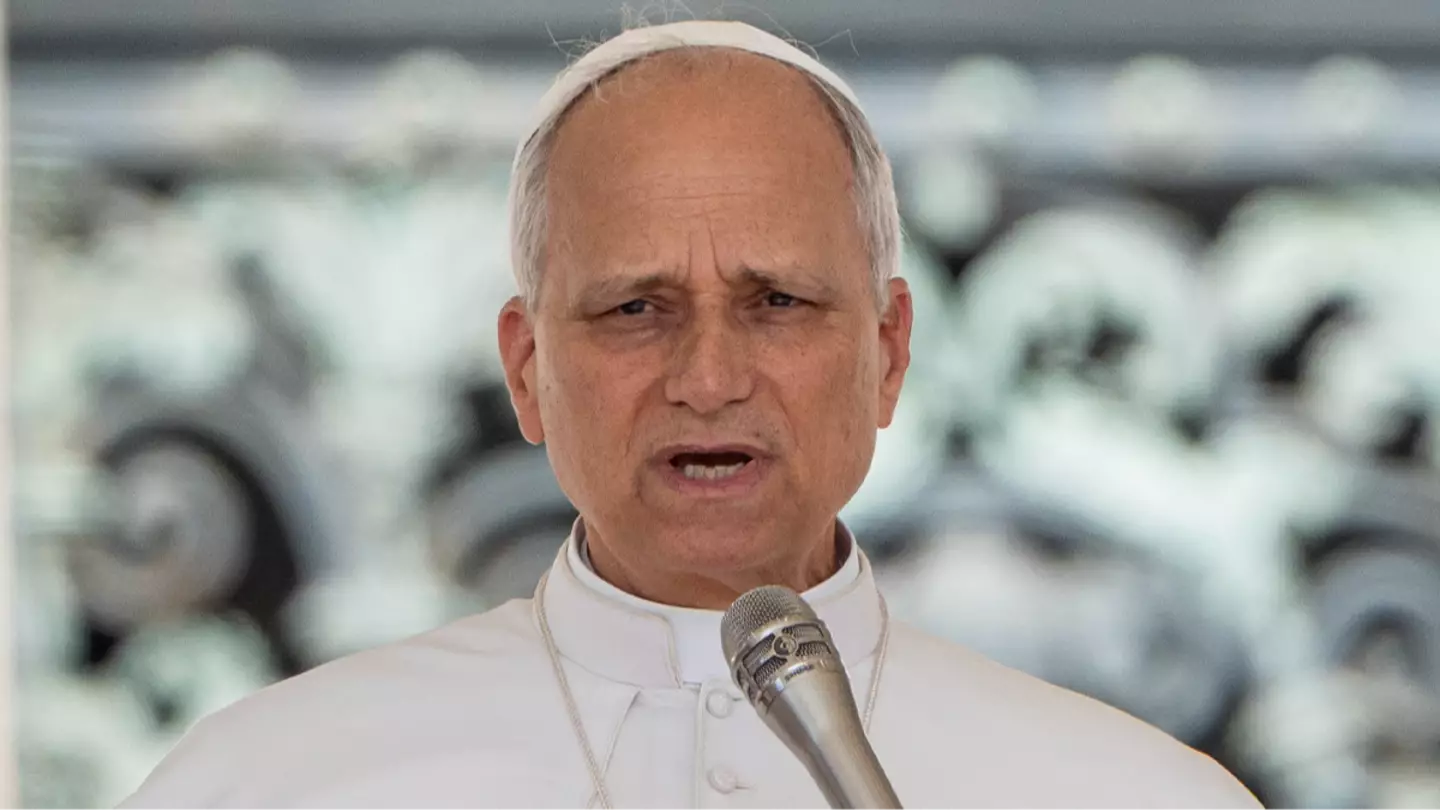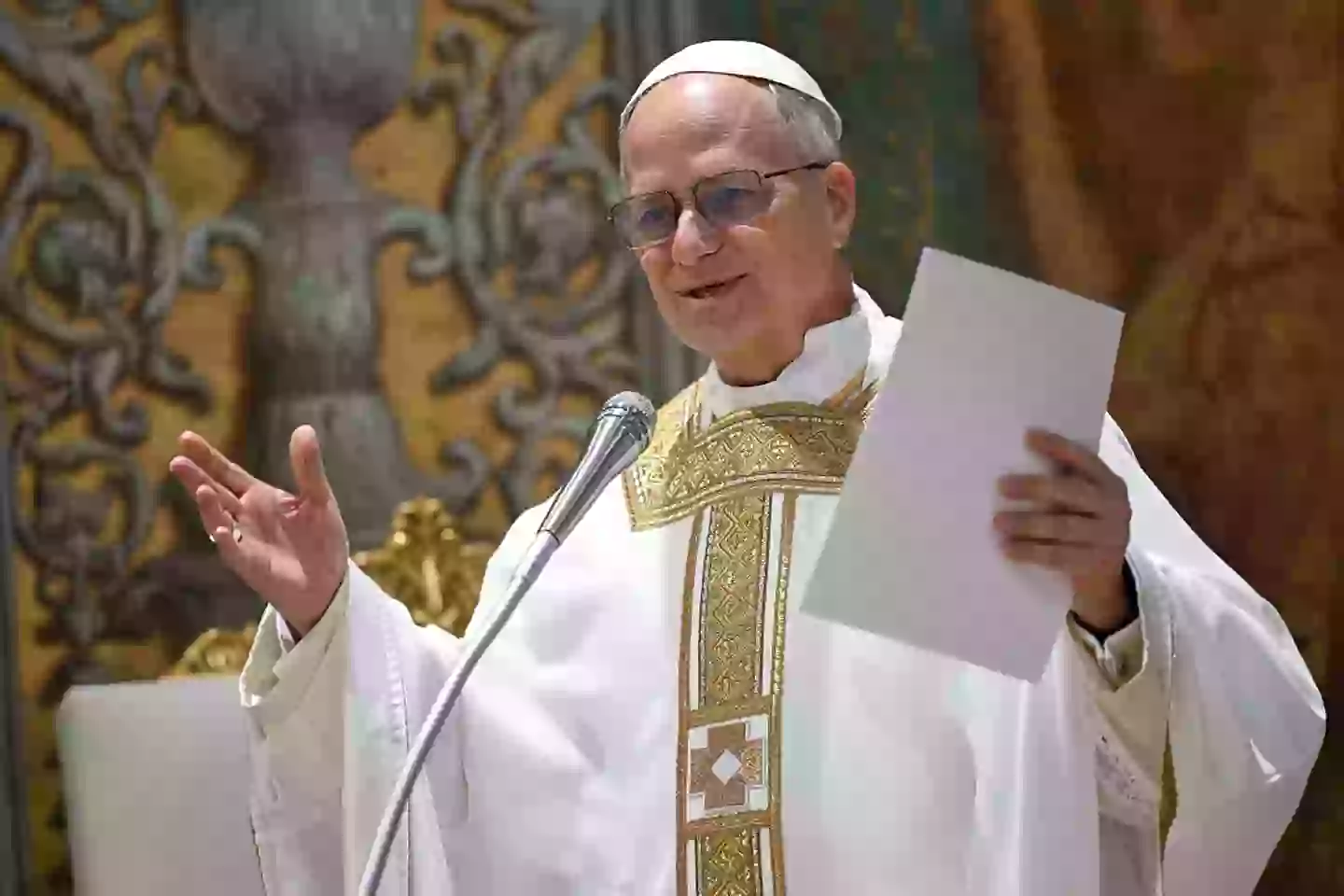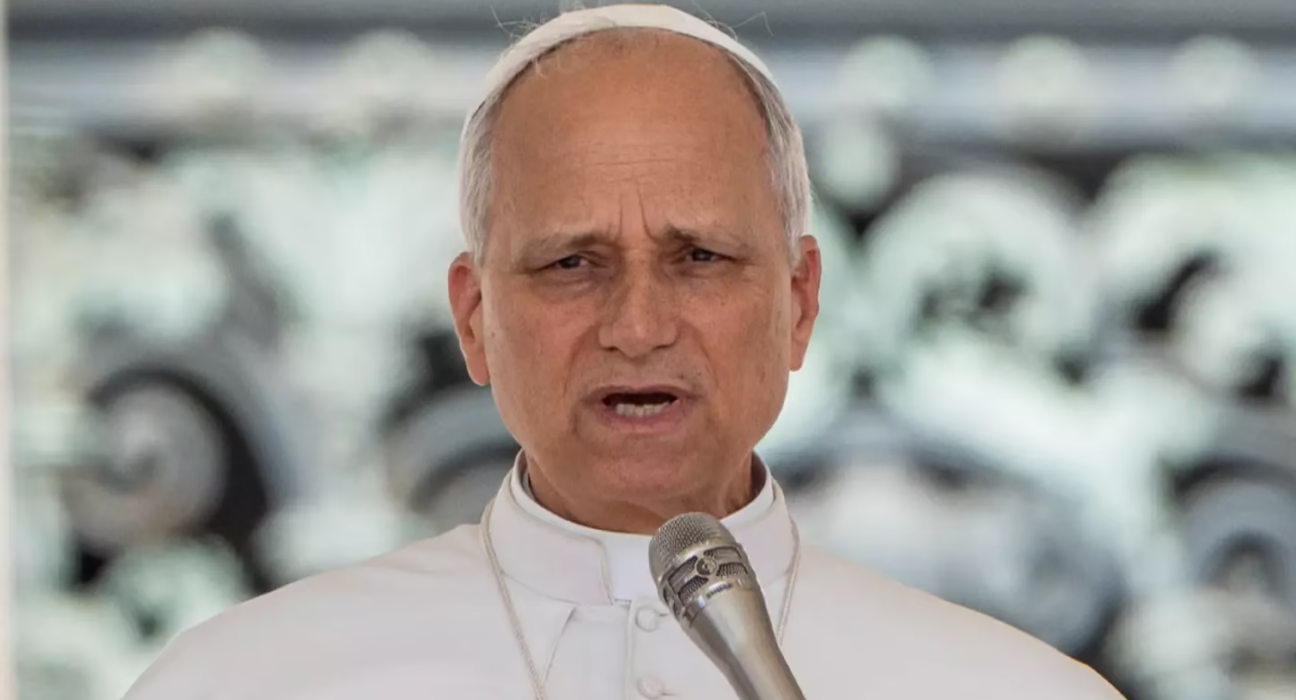Pope Leo XIV Warning: The Dangers of AI for Youth and Children’s Development
Estimated reading time: 10 minutes
Key Takeaways
- Pope Leo XIV has issued a significant Pope Leo XIV warning AI dangers youth, making the ethical challenges of AI and its effects on youth a central theme of his papacy.
- He highlights specific Pope’s concerns AI impact children development, including negative influences on intellectual, neurological, and spiritual growth.
- Risks identified include exposure to harmful content, manipulation, erosion of critical thinking, privacy issues, and impact on social/emotional well-being.
- The Pope frames his warnings within the broader context of Catholic social teaching, emphasizing Pope Leo XIV stance on AI ethics centered on human dignity, justice, and authentic wisdom.
- His warnings translate into concrete Pope Leo XIV calls for AI regulation and action, urging rigorous governance, ethical review, and proactive risk management.
- He specifically addresses Pope Leo XIV address politicians AI challenges, stressing their responsibility alongside technologists to ensure AI serves the common good.
- The Pope’s message echoes previous concerns about technology’s impact on humanity and stresses the moral imperative to protect future generations through international cooperation.
Table of contents
Introduction
Amidst the ever-accelerating integration of Artificial Intelligence (AI) into the fabric of our daily existence, a global conversation is gaining urgency. This discussion centers not only on the technological marvels AI presents but, more critically, on its profound and often unforeseen impact on society. A particularly sensitive area of concern is the effect of this pervasive technology on the world’s youth. The increasing presence of Artificial Intelligence (AI) in daily life is undeniable, transforming everything from how we work and communicate to how we learn and entertain ourselves.

In this crucial global conversation, a significant and resonant voice has emerged from an unexpected quarter: Pope Leo XIV. Since the outset of his papacy, the ethical challenges posed by AI, particularly its implications for the development and well-being of young people, have been a central theme. He has not shied away from highlighting the moral dimensions of technological advancement, positioning himself as a prominent figure advocating for a human-centered approach to AI development and deployment.

This blog post zeroes in on the primary focus of the Pope’s recent pronouncements, emphasizing the critical Pope Leo XIV warning AI dangers youth. His statements bring into sharp focus the profound changes that AI introduces into the fundamental stages of childhood and adolescence. These are formative years, sensitive to external influences, and the digital environment, increasingly mediated by AI, is a powerful force shaping these experiences.

We will delve into his specific Pope’s concerns AI impact children development, exploring the nuances of how he believes AI may disrupt traditional developmental pathways, influencing everything from cognitive abilities to social interactions and even spiritual formation. The Pope’s message is not merely one of caution but includes robust calls for action and regulation, urging stakeholders across society—from parents and educators to tech developers and policymakers—to confront these challenges responsibly.
Research findings underscore the basis for these concerns. Amid the relentless advance of artificial intelligence (AI) into daily life, global leaders are raising questions about the technology’s long-term impact—especially on the young. Among the most prominent voices is Pope Leo XIV, who has made the ethical challenges of AI and its effects on youth a central theme of his papacy. His recent warnings focus attention on the profound changes AI brings to childhood and adolescence, urging society to confront the technology’s potential dangers and responsibilities in shaping the next generation.
This perspective is echoed across multiple reports. According to Politico, Pope Leo XIV has voiced significant concerns regarding AI dangers for youth. Similarly, ABC News reports that Pope Leo XIV flags AI impact on kids’ intellectual development. These sources collectively highlight the urgency and significance of the Pope’s message.
In the following sections, we will unpack the specific concerns articulated by Pope Leo XIV, explore his ethical framework for evaluating AI, and detail his calls for concrete action. Understanding the Pope Leo XIV warning AI dangers youth and the Pope’s concerns AI impact children development is crucial for fostering a future where technology serves, rather than harms, the most vulnerable members of our society.
Pope Leo XIV’s Core Concerns Regarding Youth and AI

Pope Leo XIV has not offered vague generalities about the risks of AI; he has articulated several specific, pressing concerns about how this technology may actively undermine the healthy development of children and adolescents. His warnings are rooted in a deep understanding of formative human growth stages and a recognition of how rapidly evolving digital environments can interfere with these critical processes.
A central point of his message is the warning that the rapid and often unsupervised integration of AI into daily life can negatively influence young people’s intellectual, neurological, and spiritual growth. These are interconnected aspects of development, and the Pope suggests that AI’s unique characteristics pose novel challenges that previous technologies did not.

Discussing the Pope’s concerns AI impact children development, he elaborates on how AI can disrupt critical developmental stages by shaping how children learn, build social skills, and form their understanding of the world. AI algorithms are designed to optimize engagement, often through personalized content feeds and reward systems. While this can seem beneficial superficially, the Pope suggests it might circumvent the slower, more deliberate processes required for deep learning, critical thinking, and genuine intellectual curiosity.
He outlines several specific risks he highlights:
-
- Exposure to Harmful Content: The internet, amplified by AI algorithms that personalize content, can be a minefield. The Pope details how unsupervised AI-driven platforms may expose youth to inappropriate material, misinformation, or ideologies capable of influencing or manipulating vulnerable minds. The speed and scale at which AI can generate and disseminate content make this threat particularly potent. This also ties into broader cybersecurity threats that target young users and their data.
- Manipulation and Erosion of Critical Thinking: Perhaps one of the most insidious dangers is the potential for AI algorithms, fine-tuned to maximize engagement and dwell time, to shortcut genuine learning and reflection. The Pope warns this could potentially leave children less able to discern truth from falsehood or to develop authentic wisdom beyond mere data consumption. In an age of AI-driven content, the ability to critically evaluate information becomes paramount, and the risk is that AI makes this more difficult by feeding users only what confirms existing biases or keeps them passively scrolling. This danger touches upon the importance of revolutionary AI search technology future potential pitfalls and highlights the need for explosive AI fairness & ethics bias accountability.
- Privacy Issues: The vast amounts of data collected from young users by AI platforms create significant ethical dilemmas around surveillance, data ownership, and consent, especially when dealing with minors who cannot give informed consent. The Pope raises the risk of long-term exploitation and loss of privacy. Protecting young users requires proactive steps like securing devices and protecting smart homes from cyber threats, but the fundamental issue remains the pervasive data collection facilitated by AI.

- Impact on Social and Emotional Well-being: As AI increasingly mediates communication and entertainment, concerns mount about its role in weakening interpersonal relationships and empathy. While AI can facilitate connections, over-reliance on mediated interactions or engagement with AI companions could potentially foster isolation, diminish face-to-face social skills, or even contribute to aggression through exposure to toxic online environments.
He mentions his caution that today’s youth have “never had such quick access to information,” making them uniquely vulnerable to these new dangers. While access to information can be empowering, the sheer volume, speed, and the way AI curates it can overwhelm developing minds and make critical evaluation difficult.
Research findings confirm these points. Pope Leo XIV has articulated several specific concerns about how AI may undermine the development of children and adolescents. He warns that the rapid integration of AI into daily life can negatively influence young people’s intellectual, neurological, and spiritual growth. The Pope is particularly troubled by how AI can disrupt critical developmental stages—shaping the way children learn, build social skills, and form their understanding of the world. Among the risks he highlights: Exposure to Harmful Content; Manipulation and Erosion of Critical Thinking; Privacy Issues; Impact on Social and Emotional Well-being. He cautions that today’s youth have “never had such quick access to information,” making them uniquely vulnerable to these new dangers.
These research findings are consistently reported. Politico corroborates the Pope’s specific concerns regarding the multi-faceted impact of AI on youth development. ABC News also reports on the range of risks flagged by Pope Leo XIV, including intellectual and social impacts.
In sum, the Pope Leo XIV warning AI dangers youth is a detailed and urgent call to recognize the specific ways AI interacts with and potentially harms developing minds. His Pope’s concerns AI impact children development are not abstract but pinpoint actionable areas of risk that require immediate attention from society.
The Pope’s Stance on AI Ethics

Pope Leo XIV does not view the challenges posed by AI in isolation. His warnings are deeply embedded within the broader context of Catholic social teaching, a body of doctrine concerned with social justice issues and the common good, consistently prioritizing the dignity of the human person. Understanding the Pope Leo XIV stance on AI ethics requires recognizing this foundational principle.
He insists that every AI development, every new application, every algorithmic design, must be rigorously assessed against a “superior ethical criterion.” This is not an arbitrary standard but one that centers fundamentally on safeguarding the dignity of each person while respecting cultural and individual diversity. Technology, in this view, must serve humanity, not the other way around. It should enhance human capabilities and relationships, not diminish or exploit them.
In relation to AI, the Pope emphasizes several key ethical principles:
- Human Dignity: This is the cornerstone. The Pope explains that AI must never reduce people, especially children who are particularly vulnerable, to mere data points, profiles, or commodities to be manipulated or sold. Preserving the full, inherent dignity of every individual stands at the heart of his message. This means acknowledging their freedom, their capacity for relationship, their spiritual dimension, and their right to develop without undue technological interference.
- Justice and Protection of the Vulnerable: Catholic social teaching has a long-standing commitment to advocating for the poor and the marginalized. Pope Leo XIV extends this principle to the digital age, highlighting society’s special obligation to protect those least able to defend themselves from exploitation or harm caused by technological misuse. This specifically mentions the young, who may lack the cognitive maturity or legal standing to navigate the complexities of AI environments, as well as the poor and marginalized, who may be disproportionately affected by biased algorithms or lack access to the benefits of AI.
- Authentic Wisdom Over Data Accumulation: The Pope makes a crucial distinction between having access to abundant information (which AI provides) and possessing true wisdom. He argues that the latter requires openness to life’s deepest questions, moral discernment, reflection, and the capacity for genuine human connection. AI excels at processing data, but it cannot, by its nature, provide the context, values, or lived experience necessary for wisdom. Over-reliance on AI for knowledge risks creating generations rich in data but poor in understanding, critical capacity, and moral grounding.
Research findings support that Pope Leo XIV frames his warnings in the broader context of Catholic social teaching and human dignity. He insists that every AI development must be assessed against a “superior ethical criterion”—one that centers on safeguarding the dignity of each person while respecting cultural and individual diversity. Key ethical principles he emphasizes include: Human Dignity; Justice and Protection of the Vulnerable; Authentic Wisdom Over Data Accumulation.
These ethical underpinnings are consistently cited. ABC News notes the Pope’s emphasis on a “superior ethical criterion” rooted in human dignity. Politico highlights the principles of Human Dignity and the protection of the vulnerable in the Pope’s ethical framework. Furthermore, the Association of Catholic Priests, citing America Magazine, discusses how Pope Leo XIV applies Catholic social teaching to the AI age, particularly focusing on authentic wisdom.
Thus, the Pope Leo XIV stance on AI ethics is not merely a philosophical one but a practical framework for evaluating technology based on its impact on human persons and society’s weakest members. It is a call for ethical reflection to precede technological implementation, ensuring that innovation serves the true flourishing of humanity.
Calls for Regulation and Action

Pope Leo XIV’s warnings about the dangers of AI for youth are not intended to remain solely within the realm of abstract ethical discourse. Crucially, his message includes direct and urgent calls for concrete action from political leaders, industry stakeholders, civil society organizations, and individuals alike. He is not advocating for a halt to technological progress but for its responsible stewardship, guided by ethical principles and enforceable standards.
Central to his message are explicit Pope Leo XIV calls for AI regulation. He advocates for rigorous governance and oversight mechanisms to ensure that AI development and deployment prioritize human well-being over unfettered innovation or profit. He sees regulation not as an impediment but as a necessary safeguard in a rapidly changing technological landscape.
Detailing his view, the Pope stresses that AI’s progress should be tempered by thorough ethical review and effective regulation. The goal, he states, is to ensure that these powerful technologies serve the common good and do not become tools for “selfish gain or fomenting conflict and aggression.” This requires a fundamental shift in perspective, moving beyond a purely economic or technical evaluation of AI to include a robust assessment of its societal and ethical implications.
He specifically addresses the Pope Leo XIV address politicians AI challenges, highlighting the significant responsibility that rests upon lawmakers and technologists. He urges them to anticipate and manage AI’s risks proactively, rather than merely reacting to crises after harm has occurred. This preventative approach acknowledges the potential for widespread negative impacts, particularly on vulnerable populations like children, if ethical considerations are not built into the design and governance of AI from the outset. This challenge extends to the critical AI challenges tech industry faces when implementing these changes, requiring them to balance innovation speed with safety and ethical considerations.
The Pope’s vision for AI governance aligns with ensuring technologies serve the common good in various contexts. For instance, it speaks to the ethical considerations necessary even in areas like military AI contracts, where the potential for harm is immense and the need for strict ethical oversight is paramount.
Given the global scope of AI, the Pope also stresses the need for international cooperation. Technological advancements transcend national borders, and their impacts are felt worldwide. Developing shared ethical standards and protective measures for youth and vulnerable groups requires cross-border collaboration and agreement on fundamental principles. This is crucial to prevent a race to the bottom where ethical standards are sacrificed for competitive advantage.
Research findings highlight these calls for action. Pope Leo XIV’s warnings are not merely rhetorical; he calls for concrete action from political, industry, and civil society leaders. He advocates for: Rigorous Governance and Oversight, ensuring technologies serve the common good and do not become tools for “selfish gain or fomenting conflict and aggression”. He emphasizes the Responsibility of Lawmakers and Technologists, urging policymakers and industry leaders to anticipate and manage AI’s risks, rather than merely reacting to crises after harm has occurred. Furthermore, given the global scope of AI, he stresses the need for International Cooperation to develop shared ethical standards and protective measures for youth and vulnerable groups.
These calls for action are widely reported. Politico details Pope Leo XIV’s advocacy for rigorous governance and the responsibility of leaders. ABC News also reports on his urging of proactive risk management by policymakers. The emphasis on international cooperation is also a key element of his message, as noted in these sources.
In essence, Pope Leo XIV’s message is a practical entreaty to those with the power to shape the future of AI. His Pope Leo XIV calls for AI regulation and his direct address to Pope Leo XIV address politicians AI challenges underscore the urgent need for ethical considerations to be translated into tangible policies and responsible development practices, ensuring that AI serves humanity’s collective well-being, especially that of the next generation.
Broader Context and Significance
Pope Leo XIV’s interventions on AI are not isolated pronouncements but are deeply rooted in a historical and contemporary context of the Catholic Church’s engagement with technological change and social justice. Placing his views within this wider global discussion on AI risks and the need for ethical AI development reveals the continuity and urgency of his message.
His warnings echo and expand upon the concerns raised by his predecessor, Pope Francis, about the potential for technology, including earlier forms of digital technology, to lead to a “loss of humanity” or a diminishment of genuine human relationships and experiences in the face of accelerating technological change. Both pontiffs share a concern that society must maintain control over technology and ensure it serves human flourishing rather than dominating it.
A particularly significant detail is the current Pope’s invocation of his namesake, Pope Leo XIII. Pope Leo XIII, who served in the late 19th and early 20th centuries, is renowned for his encyclical *Rerum Novarum*, a foundational text of Catholic social teaching that defended workers’ rights and addressed the ethical challenges arising from the rapid industrialization of that era. By invoking this historical parallel, Pope Leo XIV signals a deep commitment to ensuring that the current wave of technological progress—the AI revolution—remains centered on human flourishing, not just efficiency or profit. He frames the ethical dilemmas of AI as the defining social challenge of our time, much like industrialization was in Pope Leo XIII’s era.

His warnings arrive amid a broader international reckoning with AI’s risks. Governments, academics, civil society groups, and even industry insiders are increasingly voicing concerns about issues like bias, privacy, job displacement, and the potential for autonomous weapons. Pope Leo XIV’s voice reinforces these calls worldwide for responsible innovation and robust ethical safeguards in AI development, adding a moral and spiritual dimension to the conversation that resonates with billions globally.
He emphasizes the moral imperative he highlights in protecting future generations from potential negative impacts of AI. This isn’t just about policy or economics; it’s about the fundamental responsibility one generation has to the next. Ensuring that children inherit a world where technology is a tool for good, rather than a source of harm or manipulation, is presented as a core moral duty.
Research findings explicitly connect Pope Leo XIV’s concerns to this broader context. Pope Leo XIV’s interventions echo and expand upon the concerns raised by his predecessor, Pope Francis, about the loss of humanity in the face of technological acceleration. The current Pope’s invocation of his namesake, Leo XIII—who defended workers’ rights in the Industrial Revolution—signals a commitment to ensuring that technological progress remains centered on human flourishing, not just efficiency or profit. His warnings come amid a broader international reckoning with AI’s risks, reinforcing calls worldwide for responsible innovation and robust ethical safeguards in AI development.
These connections are well-documented. Politico mentions the Pope’s connection to past social teachings and the broader international discussion on AI risks. ABC News also highlights the continuity with Pope Francis’s concerns. The Association of Catholic Priests, via America Magazine, specifically draws the parallel between Pope Leo XIV and Leo XIII, framing the current Pope’s work within the historical context of the Church addressing major societal shifts driven by technology.
The significance of Pope Leo XIV’s message lies in its ethical depth, its historical grounding, and its global reach. By placing the Pope Leo XIV warning AI dangers youth within this broader framework, he elevates the conversation beyond technical or economic considerations, urging humanity to consider the fundamental values at stake and the moral responsibility we have towards the future, particularly towards the young who will inhabit a world shaped by AI.
Conclusion
In summary, Pope Leo XIV has issued a clear and urgent Pope Leo XIV warning AI dangers youth, making the ethical development and deployment of AI, especially concerning its impact on young people, a defining issue of his pontificate. He has detailed specific Pope’s concerns AI impact children development, highlighting potential negative influences on intellectual, neurological, and spiritual growth. The risks he enumerates are tangible, ranging from exposure to harmful content and the manipulation of critical thinking to privacy violations and the degradation of social and emotional well-being.
His message is grounded in a profound Pope Leo XIV stance on AI ethics, centered on the indispensable principle of human dignity, the need for justice and protection of the vulnerable, and the critical distinction between mere data accumulation and authentic wisdom. This ethical framework serves as the basis for his forceful Pope Leo XIV calls for AI regulation and action.
Pope Leo XIV directly addresses Pope Leo XIV address politicians AI challenges, alongside technologists and industry leaders, urging rigorous governance, ethical review, and a proactive approach to managing risks rather than merely reacting to negative consequences. He emphasizes the need for international cooperation to establish shared standards that protect youth globally.
His interventions resonate within the broader global discourse on AI risks and responsible innovation, echoing past papal concerns about technology’s impact on humanity and drawing a compelling parallel to Pope Leo XIII’s response to the Industrial Revolution. This historical context underscores the moral imperative to ensure technological progress serves human flourishing, especially for the most vulnerable.
The importance of his message for parents, educators, developers, and policymakers cannot be overstated. It serves as a vital moral compass in navigating the complexities of the AI age, reminding all stakeholders of their responsibility towards the next generation.
Pope Leo XIV’s warnings about the dangers of AI for youth and children’s development are clear and urgent. He enumerates the risks—from intellectual erosion to privacy threats—and places the responsibility for safe innovation squarely upon leaders, educators, and communities. His message is a clarion call: as AI transforms society, the need to protect and nurture the young must remain paramount. Responsible development, ethical guidance, and the safeguarding of human dignity—especially for those least able to defend themselves—are essential to building a future where AI serves, rather than endangers, humanity’s next generation.

Research findings consistently summarize these points. As reported by Politico and ABC News, Pope Leo XIV’s message is indeed a clarion call highlighting the risks, enumerating responsibilities, and stressing the need for protecting the young to build a future where AI serves humanity.
Frequently Asked Questions
- What are the main dangers of AI for youth identified by Pope Leo XIV?
Pope Leo XIV highlights dangers including exposure to harmful content, manipulation and erosion of critical thinking, privacy issues, and negative impacts on social and emotional well-being. He warns these can undermine intellectual, neurological, and spiritual growth.
- How does Pope Leo XIV’s view on AI ethics relate to human dignity?
Central to the Pope Leo XIV stance on AI ethics is safeguarding human dignity. He insists AI must never reduce individuals, especially children, to data points and must respect each person’s inherent worth and diversity.
- What actions does Pope Leo XIV call for regarding AI?
The Pope Leo XIV calls for AI regulation, advocating for rigorous governance and oversight. He urges lawmakers, technologists, and industry leaders to anticipate risks proactively and ensure AI serves the common good, not just profit.
- Why is Pope Leo XIV addressing politicians about AI?
In his Pope Leo XIV address politicians AI challenges, he emphasizes their crucial role in creating policies and regulations to govern AI effectively, ensuring technologies are developed and deployed responsibly and ethically, particularly to protect vulnerable groups like youth.
- How does Pope Leo XIV’s message fit into the broader discussion on AI?
His views align with and reinforce wider international concerns about AI risks and the need for ethical development. By drawing parallels to past industrial revolutions and emphasizing human dignity, he adds a significant moral voice to the global conversation.






